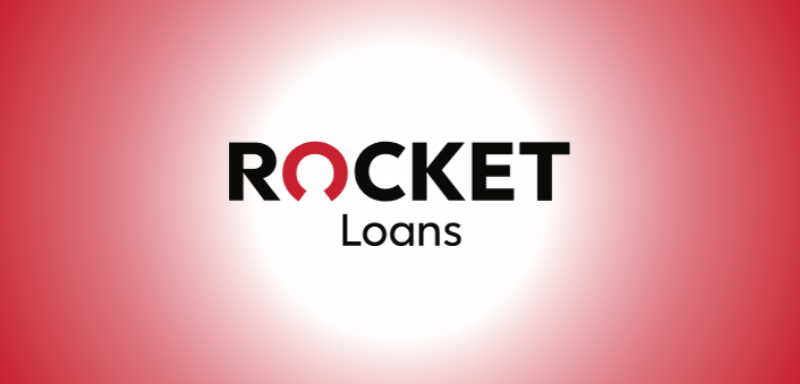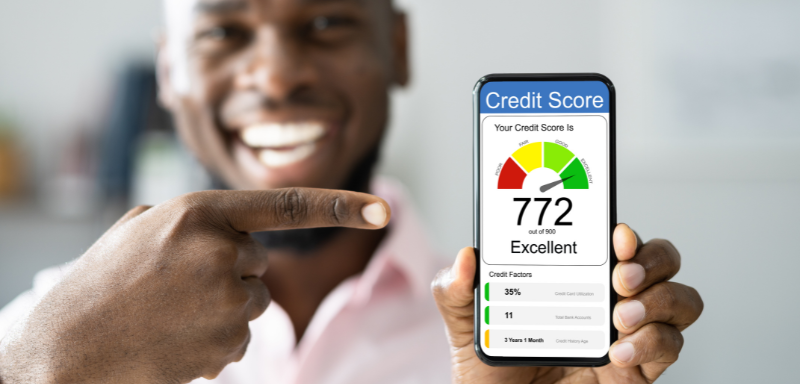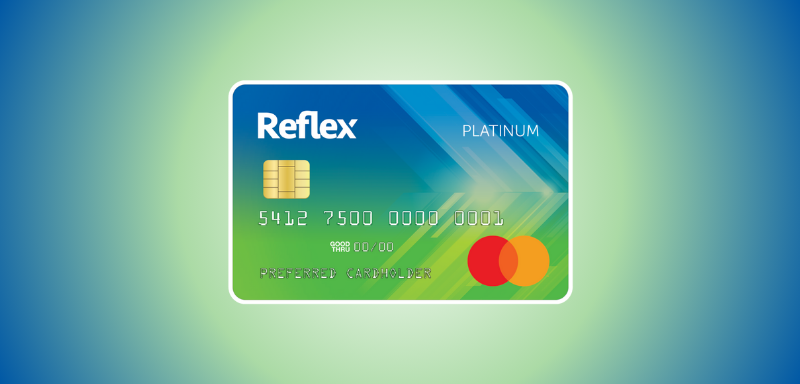Finance
Are Credit Cards a Good Financial Tool for Me? When Should I Use One?
Credit cards can be a useful tool or a financial trap. Find out when they work best and how to avoid common pitfalls in this detailed guide.
Advertisement
Find out if a credit card fits your financial strategy

Credit cards can feel like a financial magic wand—you swipe, you buy, life goes on! But like any powerful tool, they come with both benefits and risks.
Used wisely, they can unlock convenience, rewards, and a solid credit score. Misused? Well, they can lead you into a cycle of debt that’s about as fun as getting lost in a maze.
So, how do you know if credit cards are the right fit for your financial life? And when should you actually use one? Let’s break it down in a way that makes sense, without any of the financial jargon mumbo jumbo.
What Is a Credit Card and How Does It Work?
A credit card lets you borrow money to buy things—basically, it’s like a mini loan you take out every time you swipe.
Unlike a debit card, which takes money directly from your bank account, credit cards let you buy now and pay later (hopefully, not too much later!).
Here’s a quick look at how the different parts of a credit card work:
| Feature | Description |
|---|---|
| Credit Limit | The maximum amount of money you can borrow at any given time. |
| Interest Rate (APR) | The fee you’ll pay on balances you don’t pay off by the due date. |
| Minimum Payment | The smallest amount you must pay each month to avoid late fees. |
| Billing Cycle | The time between statements, typically 28-31 days, when your purchases add up. |
| Grace Period | The window where you can pay off your balance interest-free (usually 20-30 days). |
You will be redirected to another website
By submitting this form, I agree that I am 18+ years old and I agree to the Privacy Policy and Terms and Conditions. I also provide my signature giving express consent to receive marketing communications via automated emails, SMS or MMS text messages and other forms of communication regarding financial products such as credit card and loans. Message frequency varies and represents our good faith effort to reach you regarding your inquiry. Message and data rates may apply. Text HELP for help or text STOP to cancel. I understand that my consent to receive communications is not a condition of purchase and I may revoke my consent at any time.
Are Credit Cards a Good Financial Tool for Me?

Credit cards can be a powerful tool in your financial toolkit—but they’re not a “one-size-fits-all” solution.
Whether they’re a good fit for you depends on how you manage your spending and if you can resist the urge to splurge. Here’s a quick look at the good and the bad.
The Good Stuff: Advantages of Credit Cards
- Super Convenient
- Credit cards are accepted just about everywhere. From buying coffee to booking flights, they make paying for things a breeze.
- Build Your Credit Score
- Use your credit card responsibly, and your credit score will thank you. That higher score can help you get better deals on loans, rent, and more.
- Cashback and Rewards
- Who doesn’t like free stuff? Many cards offer rewards, cashback, or travel miles for every purchase.
- Fraud Protection
- If someone swipes your card (without your permission), you’re usually not on the hook for the charges.
- Emergency Backup
- An unexpected car repair? A last-minute flight? Credit cards can help cover those surprise expenses when cash is tight.
- Travel Perks
- Some cards offer free travel insurance, rental car coverage, or no foreign transaction fees. Perfect for the jet-setters out there.
- No Interest (If You Pay on Time)
- Pay off your balance before the due date, and you can dodge those pesky interest charges completely.
- Easy Spending Tracking
- Every month, you get a detailed statement of where your money went—great for budgeting or just figuring out how many coffees you really bought.
The Not-So-Good Stuff: Disadvantages of Credit Cards
- High Interest Rates
- Carrying a balance? Be prepared to pay big interest, often between 15% and 25%. That’s no small change!
- Easy to Overspend
- It’s tempting to spend more than you have because, well, it’s not your money (yet). But those purchases add up fast.
- Credit Score Risks
- Miss a payment or max out your card? Your credit score can take a hit, and that can impact future financial plans.
- Fees Galore
- Watch out for annual fees, foreign transaction fees, and late payment penalties. Some cards really pile on the extra charges.
- Debt Danger
- It’s easy to get in over your head with credit card debt if you don’t keep an eye on things.
When Should You Use a Credit Card?
So, when does it make sense to pull out your credit card instead of cash or debit? There are plenty of good reasons, but you’ve gotta know when to swipe—and when to walk away.
1. Building Your Credit
Want to build your credit score? Using a credit card is one of the best ways to do it. Every time you make a payment, it’s like a high-five to your credit report, helping to boost that all-important score.
Tip: Charge small, routine purchases like groceries and gas, then pay off the balance right away. This way, you build credit without racking up debt.
2. Scoring Rewards
If you have a rewards card, you can actually earn for spending. Cashback? Travel miles? Sign me up! Just remember, the interest charges will eat up your rewards faster than you can say “free vacation.”
Tip: Use your rewards card for everyday expenses but make sure you pay off the full balance each month to actually enjoy those perks.
3. Traveling
Credit cards and travel are a match made in heaven. Between the travel insurance, rental car coverage, and no foreign transaction fees, a good travel card can save you money and stress while you explore the world.
Tip: Look for a card that offers no foreign transaction fees if you travel internationally often—it can save you a bundle.
4. Making Big Purchases
For big buys like electronics or appliances, using a credit card can give you extra protection, extended warranties, and easier returns. Some cards even offer zero-interest financing for a set period.
Tip: Take advantage of interest-free financing, but be sure to pay off the balance before the promotion ends to avoid a mountain of interest.
5. Handling Emergencies
While it’s always better to have an emergency fund, sometimes life throws a curveball, and you might need to rely on a credit card for a quick fix.
Tip: Be cautious—only use a credit card for emergencies if you know you can pay off the balance soon. Otherwise, it’s easy to get buried in debt.
6. Tracking Your Spending
Credit cards make it easy to track exactly where your money is going. Most issuers offer detailed spending breakdowns, so you can see if your coffee habit is getting a little out of control.
Tip: Use your monthly statement as a budgeting tool to better manage your finances.
When NOT to Use a Credit Card

While credit cards can be super useful, there are definitely times when it’s best to leave the card in your wallet.
1. If You Can’t Pay It Off
If you know you won’t be able to pay off your balance in full, it’s better to skip the credit card. Those interest rates are no joke.
2. For Non-Essential Splurges
It’s easy to swipe for things you don’t really need. But if you’re using credit to buy luxury items or impulse buys, it’s time to pump the brakes.
3. When You’re Near Your Credit Limit
Maxing out your card is a quick way to hurt your credit score and lose financial flexibility. Plus, it leaves you with less room for emergencies.
4. Cash Advances? Nope.
Avoid cash advances like the plague—they come with sky-high fees and interest that starts immediately. Only do it if you’re desperate, and even then, think twice.
Using a Credit Card the Smart Way
If credit cards are a good fit for you, here’s how to make sure you’re using them responsibly:
| Smart Move | Why It’s Important |
|---|---|
| Pay in Full | Avoid interest and keep your finances in check by paying off the full balance each month. |
| Pay on Time | Late payments lead to fees and hurt your credit score. Set reminders or automate payments. |
| Watch Your Spending | Review your statement regularly to make sure you’re sticking to your budget. |
| Keep Credit Utilization Low | Try to use less than 30% of your credit limit for a healthier score. |
| Pick the Right Card | Choose a card with rewards and features that match your spending habits. |
The Bottom Line
So, are credit cards the right tool for you? It all comes down to how you manage them.
If you can keep your spending in check, pay your balance in full, and avoid unnecessary fees, a credit card can be your financial best friend. But if you’re prone to overspending or missing payments, they can quickly become a headache.
Ultimately, credit cards can be a fantastic financial tool when used wisely. Keep your discipline in check, pay your bills on time, and reap the benefits!
Trending Topics

Rocket Loans Review: Same Day Funding!
Rocket Loans: Your ticket to quick cash and hassle-free borrowing. Explore our review for a closer look at lightning-fast approval and more.
Keep Reading
What is a Good Credit Score (and How Do I Get One)?
Find out what a good credit score is, why it matters, and the best ways to improve yours for better financial benefits.
Keep Reading
Reflex® Platinum Mastercard® Review: Making Credit Access Easier
Apply for the Reflex® Platinum Mastercard® and discover the benefits of effectively rebuilding your credit! Check the full review.
Keep ReadingYou may also like

Destiny Mastercard® credit card: No security deposit required
Poor Score? Don't Worry! This Destiny Mastercard® credit card review will tell you how to rebuild it. Learn how to apply for this card!
Keep Reading
